Beijing has passed a controversial security laws for Hong Kong. The National People’s Congress voted 2,878-to-1 (6 abstained) to the proposed new law, dealing what critics have called a “killer blow” to the city’s freedoms and autonomy. With the approval, the next step is to draft a detailed and official legislation for the city, scheduled to be presented in September.
The legislation, triggered in response to last year’s pro-democracy protests that plunged Hong Kong into its deepest turmoil since its return to Chinese rule in 1997, would ban secession, foreign interference, terrorism and all seditious activities aimed at toppling the Chinese government. It would also allow “national security agencies” – essentially Chinese security forces – to operate in the city.
For more than 150 years (1841 to 1997), Hong Kong was under British colonial rule until the city’s sovereignty was returned to China with the adoption of the Basic Law. The Basic Law, which serves as the de-facto constitution of the Hong Kong Special Administrative Region (SAR), lays out the basic policies of China in Hong Kong, including the “one country, two systems” principle.
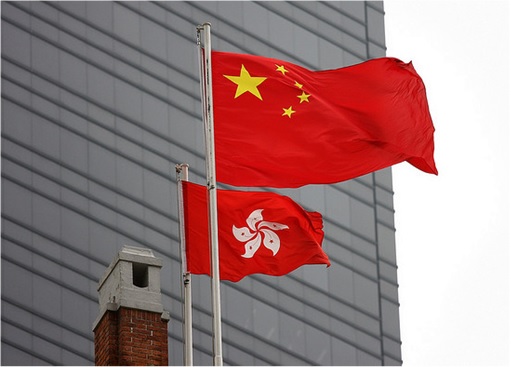
While the Basic Law guarantees that Hong Kong enjoys executive, legislative and independent judicial power and maintains its economic systems separate from China for 50 years (1997 to 2047), the same law also has a provision that requires Hong Kong to enact local national security laws that prohibit treason, secession, sedition and subversion against the Chinese government.
However, that provision for “National Security Law” under Article-23 was never successfully enacted – until today. Beijing actually tried to introduce it in 2003, only to backpedal after it attracted mass peaceful protests. Pro-democracy protesters argued that any national security laws introduced could erode the city’s freedoms and autonomy under the “one country, two systems” formula.
Of course, Beijing has rubbished the accusations that the Chinese central government was slowly but surely meddling in Hong Kong’s affairs. Instead, China blames the West, especially the United States and Britain, for stirring up trouble. Hong Kong pro-democracy protesters made a mistake when some openly and deliberately called for an “Independence” of the island.
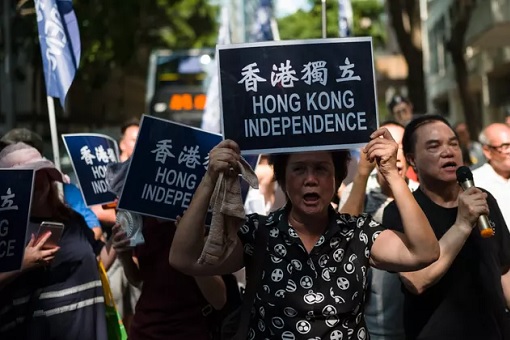
The calls for independence provides China with the ammunition and excuse to push forward the national security laws. To Beijing, waving American and Union Jack flags was the last straw that broke the camel’s back. China’s state media and social media gladly shared with people in the mainland of the violent demonstrations, while drumming the idea that it was plotted by foreign hostile forces.
The legislation has increased diplomatic tensions for China, which is facing international criticism over the Coronavirus pandemic, especially from the U.S., U.K., Canada and Australia. The UK said it may extend visa rights for as many as 3-million Hong Kong BNO (British National Overseas) passport holders if China does not change its mind.
But China has no plan to back down. The decision to bulldoze the national security laws was a calculated one. Beijing had anticipated the worst case scenario. After the 2003 U-turn, it did not plan to be humiliated again. Back in 2003, it was rising as an economic power. Today, as the world’s second biggest economic powerhouse, the nation cannot tolerate to be told what to do.
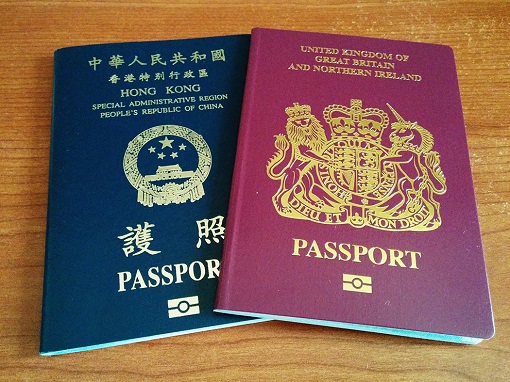
Days before the approval of the new legislation, Secretary of State Mike Pompeo has already announced that Hong Kong was no longer autonomous from China – suggesting a move by the Trump administration to remove Hong Kong’s favourable trade relationship with the U.S. and worse, open up Chinese officials to be targeted for sanctions.
As expected, President Donald Trump on Friday (May 29) announced precisely that – “I am directing my administration to begin the process of eliminating policy exemptions that give Hong Kong different and special treatment. My announcement today will affect the full range of agreements that we have with Hong Kong, from our extradition treaty, to our export controls and technologies”.
However, while Trump has voiced his displeasure and disapproval – even threats – to the Chinese legislation, the U.S. president did not provide specifics or details about precisely which steps would be taken against China. Instead, he was more specific on what to do with the WHO, when he announced the termination of relationship with the World Health Organization.
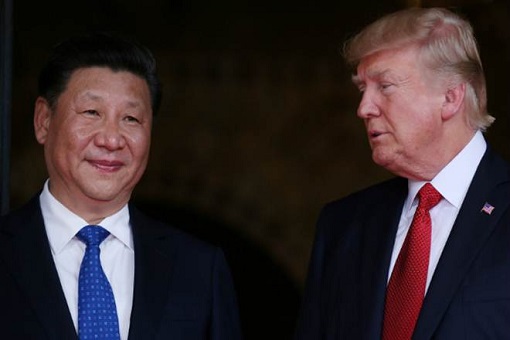
The stock markets immediately rebounded after Trump’s vague and half-baked retaliations against Beijing. Analysts and investors had anticipated the U.S. president may announce drastic and punitive measures such as additional tariffs on Chinese products, broad sanctions and a withdrawal from the U.S.-China trade deal. Trump did none of those.
Global Times, Beijing’s mouthpiece, had dared the Trump administration to carry out its threat to end Hong Kong’s favoured trade status. It had previously dismissed the president’s threats of sanctions as nothing but a “bluff”. And it’s not hard to understand why. Over 1,300 American companies have offices in Hong Kong and the city is home to about 85,000 American citizens.
Even if Trump is willing to destroy American’s commercial interest in Hong Kong just to make a statement, China is ready to play the game. That’s because the island’s importance to China has diminished over the years as mainland cities like Shanghai and Shenzhen were built to compete and take over the roles of Hong Kong – either as financial center or trading hub and gateway to China.
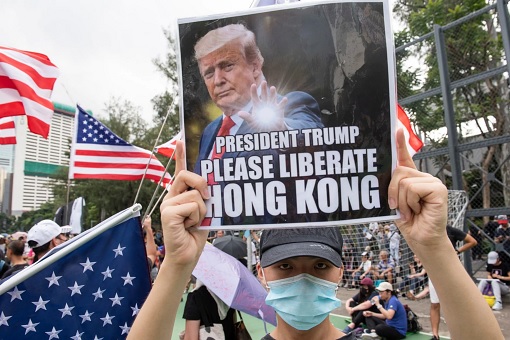
In 1993, Hong Kong’s economy contributed 27% to China’s GDP (gross domestic product). That fell to 18.4% in 1997 when it reverted to Chinese rule. Last year, the size of the island’s GDP was as little as 2.7% of China’s economy. Hong Kong is left with its world-class financial and legal systems. Beijing is ready to compromise on the importance of Hong Kong. But how about American business community?
According to data from the Office of the U.S. Trade Representative (USTR), goods and services trade with Hong Kong totalled about US$67 billion in 2018 – in favour of the United States. While the U.S. exports to Hong Kong were US$50.1 billion, its imports were merely US$16.8 billion. Therefore, the U.S. has more to lose if Trump administration imposes maximum sanctions.
More importantly, President Xi Jinping saw the opportunity to flex his muscles at a time when Washington and its allies are distracted by the Covid-19 pandemic. After winning the Coronavirus War, the Chinese government believes it is in a stronger position to tighten the bolts on Hong Kong and establish control of the territory Beijing claims an integral part of the motherland.
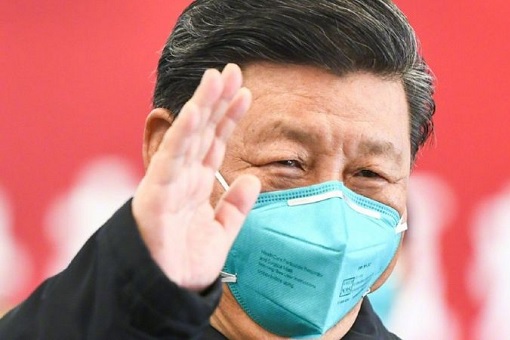
- finance twitter



No comments:
Post a Comment
Note: Only a member of this blog may post a comment.